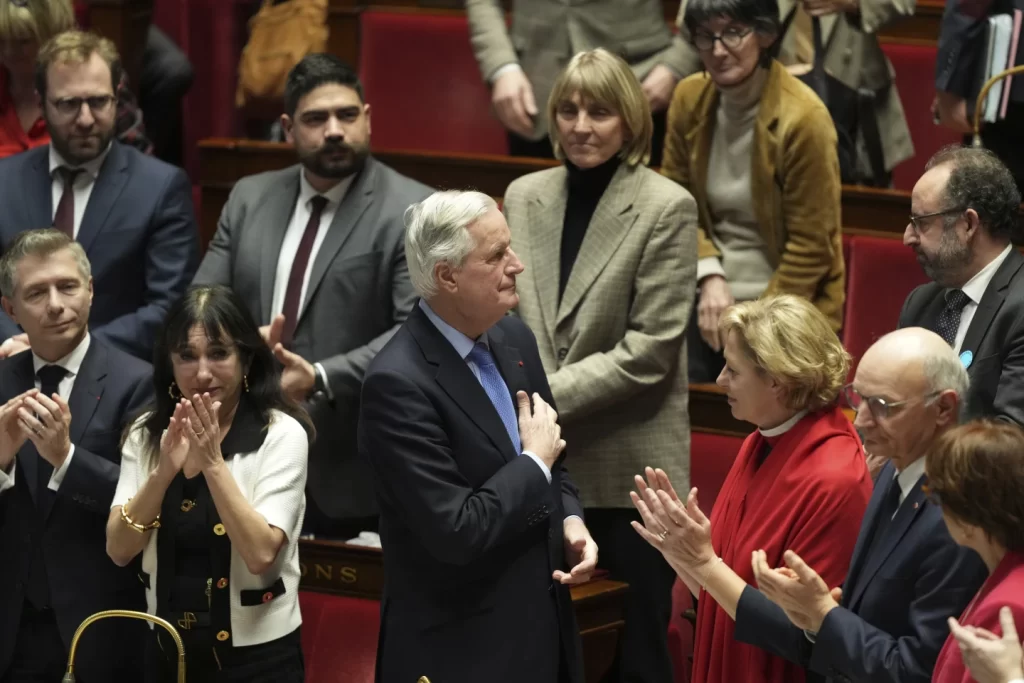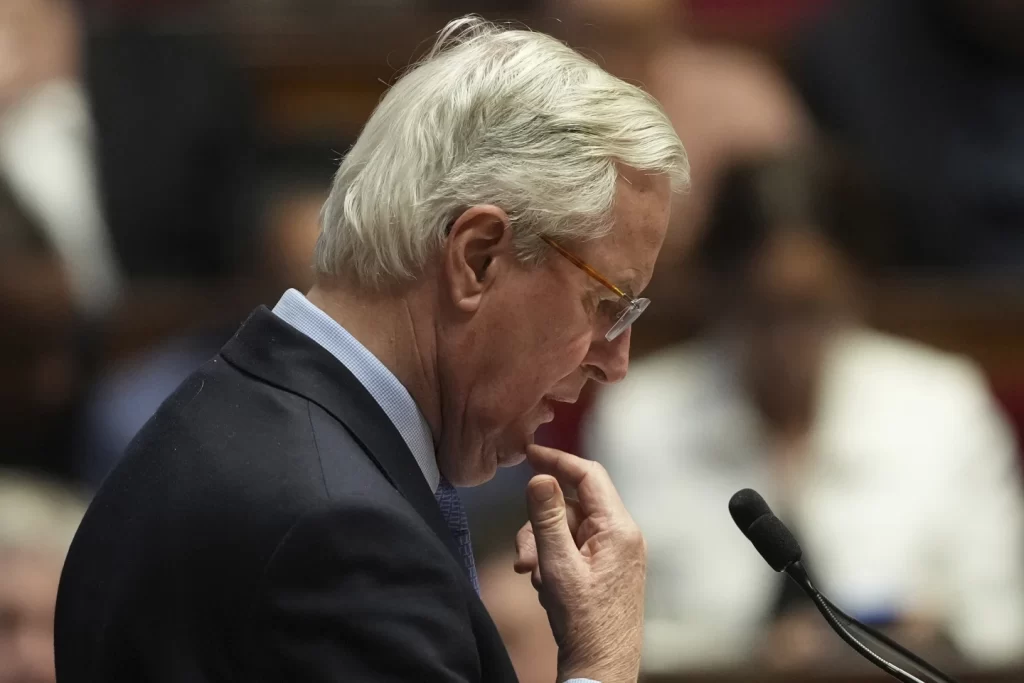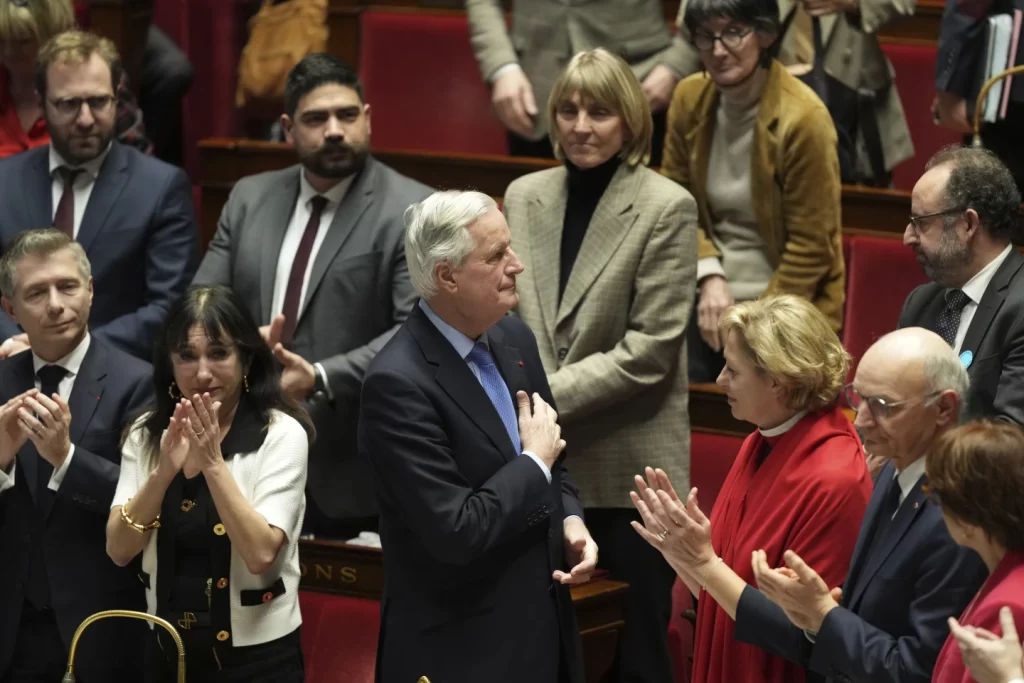French lawmakers forced Prime Minister Michel Barnier and his government to resign Wednesday in a historic no-confidence vote that united far-right and left-wing opposition parties, marking the first such successful motion since 1962.

The National Assembly approved the no-confidence measure with 331 votes, well above the 288 required, amid fierce disputes over Barnier’s proposed budget. The conservative prime minister, appointed just months ago in September, becomes the shortest-serving premier in France’s modern Republic.
“I can tell you that it will remain an honor for me to have served France and the French with dignity,” Barnier said in his final address before the vote. “This no-confidence motion… will make everything more serious and more difficult.”

President Emmanuel Macron, who faces a deeply divided parliament after July’s legislative elections, announced he would address the nation Thursday evening. While insisting he will serve his full term until 2027, Macron must now appoint his second prime minister in months.
National Rally leader Marine Le Pen, speaking on TF1 television after the vote, said the opposition “had a choice to make, and our choice is to protect the French” from a “toxic” budget. She accused Macron of being “largely responsible for the current situation.”

The political crisis raises concerns about France’s financial stability. The country faces pressure from the European Union to reduce its deficit, estimated at 6% of GDP this year. “The impact of France not having a government would clearly be negative for the growth of France and hence the Eurozone,” said Carsten Brzeski, global chief of macro at ING Bank.
While France isn’t at risk of a U.S.-style government shutdown, analysts note rising bond market borrowing costs, though the country remains far from a Greek-style debt crisis due to its long-term debt structure and continued demand for French bonds.
apnews



